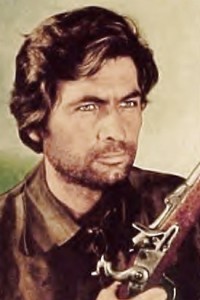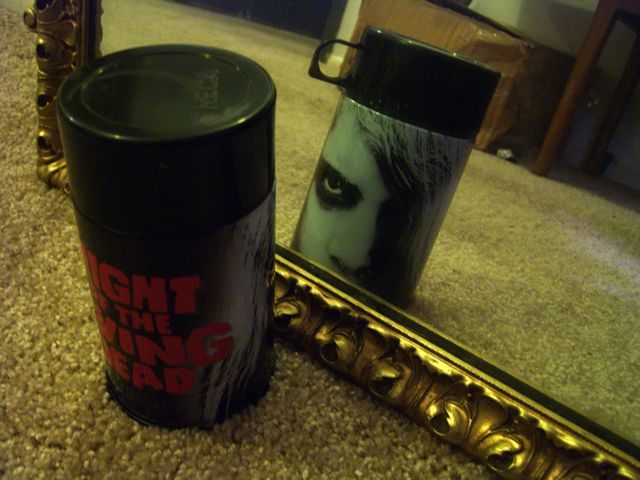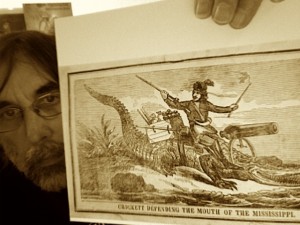
Fess Parker as Davy Crockett
Fess Parker died March 18, 2010.
“In times of change and danger where there is a quicksand of fear under men’s reasoning, a sense of continuity with generations gone before can stretch like a lifeline across the scary present.” —John Dos Passos
Reading my article on Alamo movies Parker was taken by the above Dos Passos quote in the text. It connected with his own world view that history should be taught, not for the accuracy of dates & events but for its mythic power. It was Parker’s belief that only such myths were capable of providing the lifeline.
He was the great TV Davy Crockett from the mid fifties that Disney invested in to help fund the financially troubled Disneyland experiment. A generation of baby-boomers would never be the same.
AS their parents fled inner city blacks to live in the new suburban ghettos this new generation of Davy Crockett’s broke free. Shedding the clothes of the white middle class they donned instead buckskin breeches & hunting shirts and indian moccasins topped off by the ubiquitous coonskin cap. I was one of the surban deer hunters. With my daisy mud plug & cork rifle I tracked many a varmint through Petts Wood a strip of greenbelt eleven miles sw of central London, England. They were good days now gone. In America this same generation fueled the war machine in Vietnam where another “savage” enemy was tracked through “Indian Country”.
In 1986 I first met Fess Parker when I filmed an interview with him in Palm Springs for a documentary I was producing on John Wayne’s The Alamo. (see excerpt on this website) He was serious, tough and challenging & at times I felt he was interviewing me. The Crockett role had certainly left its mark. He described touring the world to advertize the film. “I went to nearly every little town in England…I sat by dying children…” Reflecting on that time Parker could only shake his head. In ’86 his interests lay in the direction of politics & the possibility of running for office & his son whose future appeared to be a concern.
Years later I interviewed Parker again for a documentary. This time the subject was the De la Pena diary that contained a less than glorious account of Crockett’s death. The following is taken from my journal of making the film.
Nov. 17, 1998
At his winery in the hills above Santa Barbara Fess Parker denies that Disney made his films only for children. Parker decries the moral decline of the nation and how the reputations of leaders like Washington & Jefferson have currently been tarnished by their alleged trysts with slave women. Parker however, has no problems with President Clinton being abused for his misfortunes. Parker seems tired with Crockett and considers irrelevant the fuss over how he died. The fact that he died defending the Alamo is all that we need to know. He is old now & our meeting will no doubt be the last.




